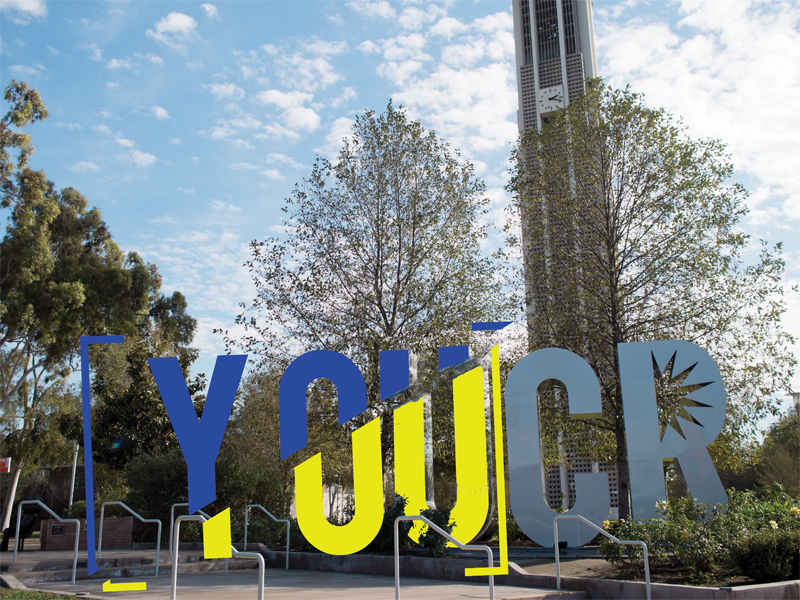
On Jan. 29, 2014, ASUCR Elections Director Chris Sanchez announced that he will ban the political party name [YOU]CR from being used in the upcoming 2013-2014 elections due to its phonetic similarities to UC Riverside’s own name. Since its nascent rise in 2012-13, [YOU]CR has dominated the past elections with its members wielding control of more than three-fourths of the senate in the past two elections.
Sanchez reports that he is enforcing an existing elections code regulation to ensure that student voters do not confuse ASUCR political parties with current campus organizations, as listed under item two of the Elections Code, entitled “New Party Creation.”
“The elections director has the ultimate authority in deciding the proper enforcement of the elections code, therefore in interpreting (that) no party name may include as a part of its name, the name of or reference to any organization,” he said. “So the fact that the party name [YOU]CR has been used the past two years sounds phonetically (and) exactly the same as our university’s name … leads me to believe that it is in conflict with the elections code.”
Sanchez also justified the change as a way of “reinventing the entire elections process,” for the new makeup of candidates come election time.
“We feel that, really, people shouldn’t be elected into office just because they’re related to a party name that’s had success in the past,” he said. “They should become elected into office because their vision is the one that students want to see enacted.”
[YOU]CR received high membership rates during the 2012-13 and 2013-14 election years. In the former academic year, the senate implemented a three-prong student government: executive, legislative and judicial branch — as approved by the student body — to ensure a more democratic process.
But even then, the 2012-2013 senate was often stricken by controversies surrounding late candidacy applications, the disbandment of a political party and discussions of delaying the elections. In one scenario, senators voted to accept the candidate applications of three former [YOU]CR candidates-turned-senators, one of whom participated in the vote.
In a preemptive effort to address any hiccups this year, Sanchez and his elections committee revamped the election code last week to increase competition and create fewer barriers to entry for potential candidates, such as lowering the requirement for establishing a political party from seven people to three.
As one of two CHASS senators who won under a non-[YOU]CR party, Senator Ranjit Nair explained why he felt the political party name was banned. “I feel like it’s so nobody would have an edge in the elections,” he said. “I don’t want to say that it’ll be more fair, but I feel like … the elections would be less biased.”
Nair also explained the selection of his former political party name, OUR’SIDE, was meant to encompass each member’s platform. “We wanted a party name that would resemble like our ideals … we wanted a unified name in a sense.”
Taking on a similar viewpoint, elections committee member and former [YOU]CR party member, Senator Sandy Saly said the name ban would generate more competition within a more diverse cohort of political parties. Saly expressed that members of the same political party should have a shared agreement over political stances and party name.
“You’re not just going to jump into a party without knowing what they stand for and usually a party has a reason, they have a purpose (and) they have an objective,” Saly said.
ASUCR candidate applications are due on Friday, Feb. 21.








